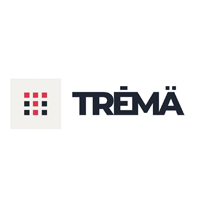Building Net Zero Energy Homes
A new pilot project of 35 Net Zero Energy Ready homes built in 2020 located near Montreal, Quebec, with the option to add solar PV for Net Zero certification, leads the way in affordable green lifestyles in a cold climate zone.
How to build Net Zero Energy ready homes? Follow our example!
A high efficiency building envelope is the best place to start. From 2 bedroom homes at 1500 sq.ft. to 4 bedroom homes at 2400 sq.ft., this pilot project involves combining Net Zero Energy homes with electric vehicles for a zero-energy balance over one year for these outstanding high-performance houses. That's not an easy feat for family homes in this very cold climate, which shows that it is possible to build this type of homes affordably virtually anywhere in North America.
What exactly are Net Zero Energy Homes?
This pilot project, which is located 20 kilometers (or about 12 miles) north of Montreal in the suburb of Mascouche, is also close to the train station and major highways (highways 640 and 25) for easy and sustainable commuting by electric vehicle. There is a Net Zero Energy show home open to visitors that will only consume $2.50 CAD of energy per day for heating, lighting and charging an EV for transportation. Choosing this type of outstanding family home could save its owners around $1,500 a year!
This community stands out for its mass of green spaces, landscaped paths and natural areas. A primary school will be built at the center of the neighborhood, which is slated to open at the start of the school year in 2021. There is also a secondary school nearby. For those of us with tiny humans, we know having a school close by is a big consideration and even better for the environment if it's within walking distance.
There is a preconception among new home buyers that a Net Zero Energy home is going to cost considerably more than a code-built home, but these models have been carefully specified and built to be financially more accessible than might be thought possible. Helped in part by various grants and financial aids, regardless of which areas new home seekers are looking in, it is definitely worth checking for incentives and new home developments that are built to Net Zero Energy standards as they are certain to attract a premium price in the years ahead.
So what exactly is a Net Zero home? It’s pretty simple; these are houses that produce as much energy as they consume. It’s expected that in Canada, all new construction will need to be Net Zero by the year 2030.
The goal of a Net Zero home is to design and build in a way that there will be zero energy consumed when factored over an entire calendar year. Energy will still be consumed of course for electrical needs and heating, but it would be compensated for by homeowner generation systems such as photovoltaic solar panels.
Solar electricity production can be injected into the Hydro Quebec network through net-metering, or into personal home battery power storage. Even if it’s the first option that’s the most popular, homeowners are looking more and more for autonomy, and therefore, it goes without saying… more savings.
Net Zero Energy homes - this project

What does a Net Zero Energy home look like?
An energy efficient home: Thanks to careful design, which is optimized for passive solar gain, Zero Energy homes consume much less energy because they have a high standard of insulation, weather-proofing and airtightness. They are also designed with high efficiency windows and efficient mechanical systems and heating.

Photovoltaic solar panels for electricity
To enable the house to produce energy on-site, solar panels are installed on the roof. This enables a home to benefit from 'free' electricity. The thing with solar panels, is that the amount of electricity produced completely depends on the surface area of the solar panels and the insolation (or amount of sun they get), among other things - which is something to bear in mind.

An electric vehicle - transport never looked better
Charging an electric car at home in Quebec is already 'clean', as most electricity here is renewable already. However, the idea of these Net Zero Energy Homes with photovoltaic solar panels is to stay below the 40kWh net use of grid electricity mark to access Hydro Quebec's cheapest electricity rates, so the solar array is calculated to charge the car.
Become a free Ecohome member today!
Being a member means special offers and hearing first about new products and construction techniques, and it only takes a minute...
Discover more
Imagine living in a Net Zero Energy home
In the green neighborhood of Les Jardins du Coteau, the Trema Group of Quebec are building these affordable yet top quality housing units. We believe quality of construction and energy-efficiency are the two most important criteria when buying a new property, of course after location, location and location.
So, it's good news for everyone when we say that these are the main qualities of these Net Zero Energy homes. These modern style houses are both Novoclimat Select certified, which is a Quebec specific new green home certification, and they also aim for LEED V4 certification.
These beautiful sustainable homes have also been designed specifically to provide greater durability, substantial energy savings, increased comfort, better indoor air quality, and greater resale value, which is an important consideration given that our homes are our biggest investment.
More about electric vehicles
Following on from our last point, owning a Net Zero Energy ready home would be amazing with many advantages, but we thought it through a little further… pairing a Zero Energy home with an electric car is even better.
Electric vehicles are becoming increasingly more common, and most of us have likely had a conversation about one at some point or another. And rightly so, the savings can be awesome. Compared to a typical home and a gasoline car, the savings that could be made with a home with an Energuide* rating of 87 and an electric car amount to around $1,596 annually!
In our opinion, it’s worth reinvesting the money you save on heating your home into an electric car (and electric fast-charger).
Is an electric car for everyone?
That's hard to say, but to use Quebec residents as an example, they travel by car for an average of 39km per day (NrCan, 2008). Electric cars on this project will allow travelling a distance that meets the daily needs of Quebec motorists and more. EVs cost between $25,000 and $125,000, and with government incentives and legislation they are likely to be the most popular commuting vehicles in a few short years.
It’s also important to note that buyers of electric vehicles in certain areas can benefit from significant subsidies. The new subsidies on electric vehicles in California come to mind.
*EnerGuide is the official mark of the Government of Canada associated with the labeling and energy rating program of key consumer goods - homes, light vehicles and certain energy-using products.
Interested in discovering more?
Calling all home builders!
There’s never been a better time to build Net Zero Energy ready homes…
With an increasingly demanding clientele, and in the age of climate change, builders must always push the quality of their homes to greater durability and efficiency. With demand rising sharply and the rise of ecological certifications such as Novoclimat, LEED, Passive House, Net Zero Energy, building sustainable homes is a surefire way to stand out from the competition.
In addition to this, choosing to invest in better housing always pay off. Many grants and financial incentives are available across North America, and with this exceptional housing project, the majority of Quebecers have shown they want high-quality and energy-efficient homes. Most say that they are willing to pay a little more for a sustainable home too as discerning home-buyers are starting to recognize that they make for a better investment.
Discover more about high performance home building:
Benefits for local government
Become sustainable neighborhood pioneers
For residents of Quebec where Les Jardins du Coteau are located, the quality of construction, energy efficiency and investment potential are among the most important criteria when buying a new property. It is also worth noting, that in many parts of Canada it is expected that all new construction will need to be Net Zero by the year 2030. So being an early-adopter and choosing a Net Zero Energy home now is an invaluable investment for the future.
Attracting owners to towns and areas by standing out with new building standards and regulations that require more durable, efficient, comfortable, and high-quality constructions is a very smart move to encourage growth. Likewise, being among the first cities to achieve climate goals in terms of reducing related GHG emissions by facilitating the shift to electric vehicles and efficient homes for residents is likely to attract a more dynamic community.
For more information on how to build Net Zero Energy ready homes, contact us!
More interesting articles on green home building... |
Videos
WHAT ARE NET ZERO ENERGY HOMES? Watch our free webinar here:
This Net Zero Energy home construction project is by:















Partially Funded by Natural Ressources Canada
Financé partiellement par Ressources naturelles Canada


Discover more!

















